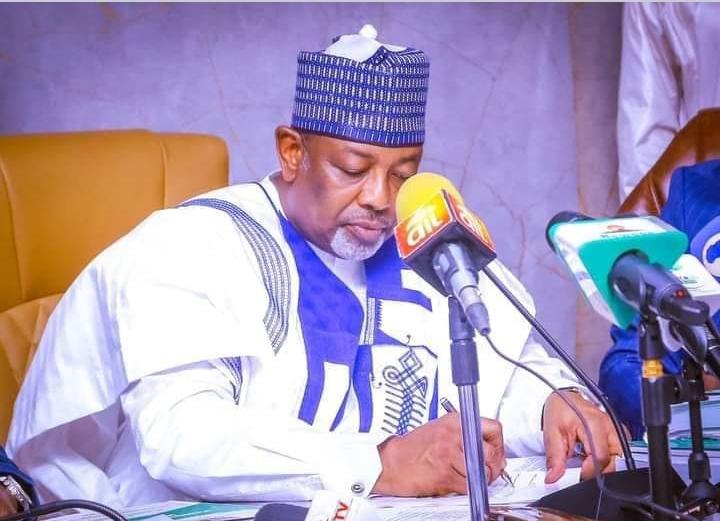The controversy surrounding the $530 million Special Agro-Industrial Processing Zone (SAPZ) program revolves around allegations of regional exclusion. The North-East Caucus of the National Assembly expressed concerns about the perceived absence of their region from the initiative, emphasizing the perceived unfairness given the North-East’s status as a major livestock hub. This caucus, comprising senators and House of Representatives members from Adamawa, Bauchi, Borno, Gombe, Taraba, and Yobe states, appealed to President Bola Tinubu to address the issue, citing fairness and equity. Their appeal followed an emergency closed-door meeting held at the National Assembly Complex in Abuja. The caucus’s primary concern was the apparent sidelining of the North-East, a region grappling with economic challenges and in need of agricultural development.
However, the Minister of Agriculture and Food Security, Senator Abubakar Kyari, countered the caucus’s claims. He clarified that three North-Eastern states – Gombe, Borno, and Bauchi – had expressed interest and were included in the second phase of the SAPZ program. Kyari explained that the initial phase of the program involved only eight states due to the voluntary nature of participation and the fulfillment of specific eligibility criteria. He underscored that the program was a Federal Government-enabled initiative requiring state governments to express interest and meet certain conditions. The selection process involved a joint team from the Federal Ministries of Agriculture and Finance, along with the African Development Bank, assessing each state’s compliance with the set criteria.
The initial phase included Kaduna, Kano, Kwara, Oyo, Ogun, Imo, Cross River, and the Federal Capital Territory. Kyari emphasized that the program’s design aimed to encompass all interested states eventually. The Vice President’s efforts to secure additional funding during international engagements, including the Rome Food System Summit and the World Food Price meeting in Iowa, USA, aimed to expand the program’s reach. This secured a $1 billion commitment from the African Development Bank President, specifically for incorporating more states into the SAPZ initiative.
The second phase commenced with 27 states expressing interest, with 10 states, including the aforementioned three from the North-East, fully meeting the eligibility criteria for the first tranche of this phase. Kyari highlighted the phased approach for onboarding states in the second phase, implying that other interested states still had opportunities to participate. He refuted the North-East Caucus’s assertion of complete exclusion, stressing that Gombe, Borno, and Bauchi were actively involved. He further encouraged the remaining North-Eastern states – Taraba, Yobe, and Adamawa – to demonstrate their commitment by fulfilling the eligibility criteria for inclusion in subsequent tranches of the second phase.
Kyari’s explanation reveals a process of engagement and eligibility verification. The initial eight states were not chosen arbitrarily but rather based on their proactive expression of interest and successful fulfillment of established criteria. The subsequent phases aimed to expand participation based on available funding, a crucial factor highlighted by the Vice President’s international efforts to secure additional resources. The three North-Eastern states’ inclusion in the second phase demonstrates their engagement with the program, contrasting with the caucus’s claim of complete exclusion. The minister’s call for the remaining North-Eastern states to fulfill the eligibility criteria signifies the program’s openness to incorporating more participants based on merit and capacity.
The perceived exclusion of the North-East region appears to stem from a communication gap and a lack of complete understanding of the SAPZ program’s phased approach. While the caucus’s concerns highlight the need for clear and consistent communication regarding program details and eligibility criteria, the minister’s response clarifies the process and emphasizes the program’s intent to be inclusive. The onus now rests on the remaining North-Eastern states to engage actively and fulfill the requirements for participation, demonstrating their commitment to agricultural development within the framework of the SAPZ initiative. This episode underscores the importance of transparency and proactive information sharing in government programs, particularly those with significant regional implications.














